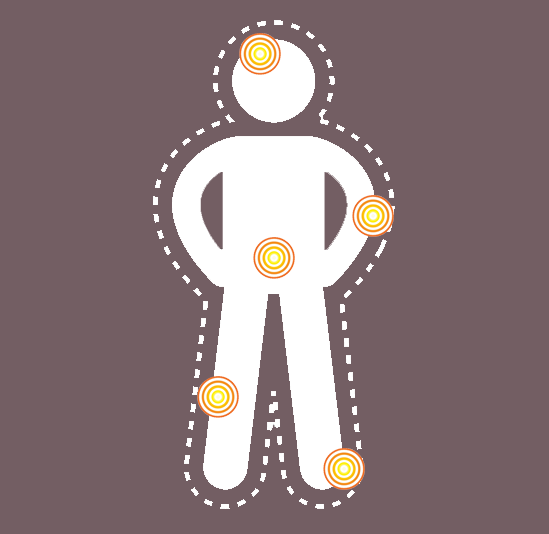What is Crohn’s disease?
Crohn’s disease causes inflammation of the digestive system or gut. It extends deep into the lining of the intestinal wall, frequently causing painful abdominal cramps, diarrhoea, rectal bleeding, loss of appetite and weight loss.
A common complication of the disease is blockage of the intestine caused by scar tissue that narrows the passageway. The disease may also cause sores, ulcers and nutritional deficiencies.
Why do I have Crohn’s disease?
Crohn’s disease tends to run in families and affects men and women equally. Experts believe that it has a genetic basis, but that it does not appear until a bacteria or virus triggers an abnormal reaction of the immune system.
Crohn’s disease can be difficult to diagnose because its symptoms are similar to other intestinal disorders, especially ulcerative colitis, another inflammatory bowel disease that affects only the colon. If the disease continues untreated for many years bowel function deteriorates and the situation can become serious.
How is Crohn's treated?
Conventional treatment usually involves drug therapy and sometimes surgery. The type of treatment needed depends on the type of symptoms, as well as their degree of severity.
Since there is currently no cure for Crohn’s disease, the goals are to control inflammation, relieve symptoms and correct nutritional deficiencies – all of which can help keep Crohn’s disease in remission.
How can Foodwise help?
Do you suffer from Crohn’s disease? Foodwise can help.
Anti-inflammatory pain medications, corticosteroids, antibiotics and immune suppressing drugs are not your only options. We have all the nutritional information and dietary advice to help manage Crohn’s disease naturally and help alleviate its symptoms.
Join nowHow does healthy nutrition help treat Crohn's disease naturally?
Nutritional therapy is an essential part of the treatment of Crohn's disease.
People with this condition are often malnourished because the inflamed bowel cannot absorb nutrients properly.
Low levels of vitamin B12 are particularly likely, especially if the ileum, the part of the gastrointestinal tract where most of this vitamin is absorbed, has been removed by surgery.
Nutritional therapy can decrease the need for anti-inflammatory and immune suppressive drugs, so avoiding their unwanted side effects. It can also prolong periods of remission and may reduce the need for surgery.
Controlling inflammation is key
Since inflammation plays a key role in Crohn’s disease, the dietary and lifestyle approach puts the emphasis on controlling inflammation particularly through supplementation with omega 3 fatty acids, glutamine and the avoidance of saturated fats.
An effective approach to managing Crohn’s disease includes:
- following a whole food, anti-inflammatory diet
- identifying food allergies and intolerances
- avoiding inflammatory foods
- supporting the integrity of the intestinal lining
- avoiding stress and correcting nutritional deficiencies
...and the appropriate use of natural supplements and home remedies.

